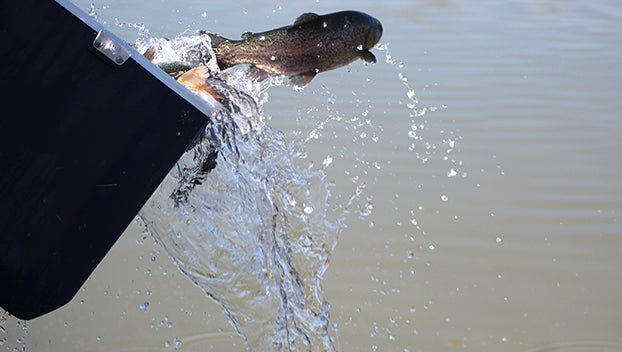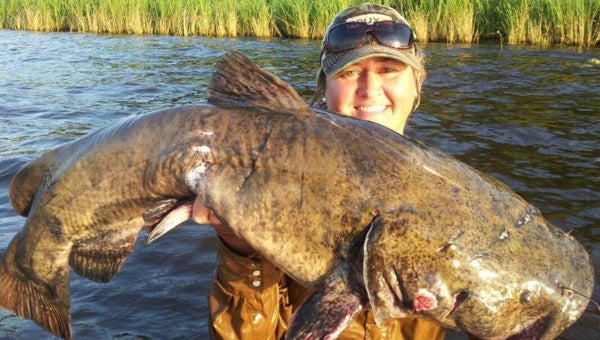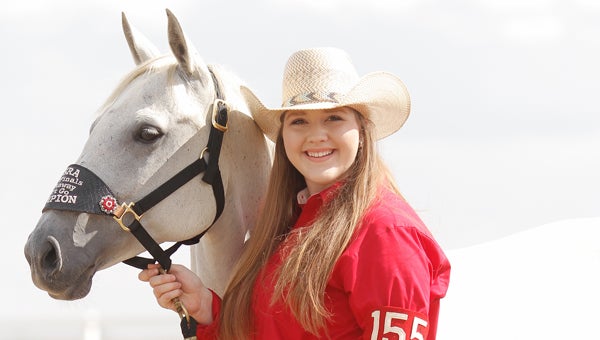Frank family hunting diary tells the story of Panola Hunting Club
Published 12:19 am Sunday, June 17, 2012

Smokye Joe Frank sits in his room full of collectables at his home in Natchez. Frank is a history and anthropology buff who has been collecting entries from his father’s hunting diary that was created in 1965 and chronicled the day-to-day happenings at Panola Hunting Club in Port Gibson. (Lauren Wood \ The Natchez Democrat)
NATCHEZ — “The season is over. I can’t say I’m sad. It have not been too good. It have not been too bad. It seems the turkeys got all the breaks. But I’ll still settle for Old Doyle’s steaks.”
That poem was written by John “Cutter” Frank at the close of the 1970 turkey season. It can also be found on the final entry of “Cutter’s Panola Diary,” which chronicled — in great detail — the early years of the Panola Hunting Club.
Frank’s son, Smokye Joe Frank, compiled the pages that formed the bulk of his father’s hunting diary which spanned from 1965 to 1970. Smokye said the project satisfied his love of history and anthropology, but also allowed him to relive his family’s history.
“I mean, I wrote in there,” Smokye said. “I have stories in there, my brother has stories in there and my dad and mom. There are a lot of guys that are no longer with us in there, and we shared memories.”
Smokye said the diary, which was continued after 1970 and has been compiled in pieces, contains hunting stories, family stories and friendship stories. But it also shows the evolution of hunting camps through the eyes of the Panola Hunting Camp in Port Gibson.
Smokye said the camp’s story begins in the late 1950s, even before a single word was written in the diary.
John and some friends, including Doyle Cooper (who is referenced in the diary’s poem) and Richard and Jack Parker (who owned the land that Panola is located), decided they wanted to have their own hunting camp. John then purchased an old city bus and took it to Port Gibson and made it a camp, Smokye said.
“They made it a two bed room with no electricity or running water,” Smokye said.

Photos taken at the hunting camp show Frank’s friends and family members. (Lauren Wood \ The Natchez Democrat)
Smokye said the men designed the interior of the bus into their own hunting camp, and eventually family members and friends made their way to hunt with them. Smokye said he even stayed in the bus a few times.
“In the middle of the night you heard snakes and lizards, and you can’t go out because the mosquitos were so bad,” Smokye said. “You had to go in late fall or early spring, because in the winter it was too cold. You could hear mice running through the walls.”
But Smokye said it was paradise for his father and his friends, because they had their place to hunt.
“They enjoyed themselves,” he said.
Word spread of the camp, and eventually the Panola Club started to see more and more people come to hunt. Smokye said as the diary develops, it shows the evolution of hunting and hunting clubs.
“When it started out people had dogs and shotguns,” he said. “This was before the time of tree stands. You would sit in a spot, and the dogs would hopefully run a deer by you.”
Smokye said as word spread, the group made the camp larger, and eventually started having women come in and bring 8×15 foot campers.
“It evolved from a group of four to six guys that brought in people with different skills,” he said. “You would have a carpenter, plumber, electrician. And they came together and it became a little community.”
Smokye said the venture evolved into a hunting camp that hosted as many as 35 people at one time.
John was part of the Panola Club until his death in 1991 and saw all the changes that took place, but Smokye said his father’s goals were always simple.
“He was happy he had a place to hunt,” Smokye said. “He went up with the Parker brothers. It was just he and a few of his friends.”
Smokye said the camp started with deer, squirrel and raccoon hunting along with some fishing, but one of the major changes came when turkeys were introduced into the area in the mid-60s.
“McComb shipped the turkeys to Yucatan Island, and we trapped deer and sent them to McComb,” Smokye said. “The turkeys flew across the river to the area around (the camp). Dad and Jack (Parker) spend two or three years and fed the turkeys twice a week until the turkey population exploded. After that it became a turkey camp.”
John loved turkey hunting, Smokye said, and he took great pride in his ability to call and kill the birds. Smokye said John even made his own make-shift turkey calls.
“A guy from Jackson came down and dad showed him how to make it,” Smokye said. “Now that guy sells mouth calls. Daddy got a lot of people into it. A lot of young people started hunting because of him.”
Smokye said he enjoys going back and looking at his own personal entries in the diary, as well as those of his family and friends. The collection includes sketches, poems and notes including hunting updates. And Smokye said a collection like his father’s diary is hard to come by.
“A lot of camps didn’t keep diaries,” he said. “You don’t see that many hunting camp diaries and this shows you the life of a hunting camp.”
Smokye said although his father’s diary from 1965-1970 is the only comprehensive collection he has, he still has pieces of the diary written on paper plates, no trespassing signs and notebook paper from after 1970. He said he also does not know if there were records of the camp before 1965.
“There may have been other ones,” he said. “There may be more.”




